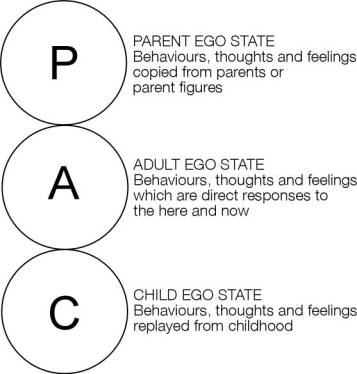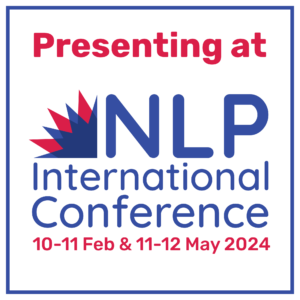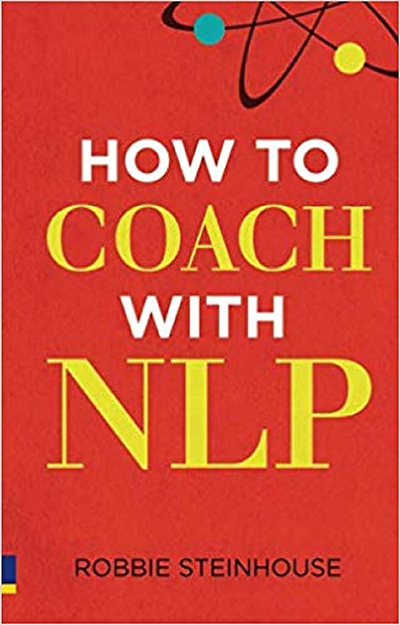New Year’s Resolutions: An NLP School Guide

Welcome to 2020! A number for perfect vision and new beginnings. Each year, we resolve to become a little better, and take one step closer to our ideal versions of ourselves.
But in our quest for perfection, the New Year can start to feel like a test. One that we have failed many times before.
The problem with New Year’s resolutions isn’t the intention. It’s the execution. We give it our all in January and run out of steam by February.
If this sounds familiar, then here are two techniques from NLP School to help you stick to your New Year’s Resolutions:
· The Learning Cycle. To change your attitude to learning new skills
· Transactional Analysis. To help you when you don’t stick to your goals.
To stick to our resolutions, we first need to learn new techniques for bringing about change.
The Learning Cycle
What is it?
The Learning Cycle is the principle that our learning happens in four phases. You go from:
· Unconscious Incompetence. This is when you don’t know something, and don’t know that this is the case
· To Conscious Incompetence. This is when you don’t know something, and know that this is the case
· To Conscious Competence. This is when you know how to do something by actively trying
· To Unconscious Competence. This is when you know how to do something, without even trying
How can The Learning Cycle help with your New Year’s Resolutions?
When it comes to setting New Year’s resolutions, most of us are in the stage of Conscious Incompetence. We know that we want to do something, but we don’t know how to do it yet.
Having set a New Year’s resolution, however, we immediately want to jump to the stage of Unconscious Competence. We want to feel effortless.
The problem is – you can’t skip any of these stages. You have to go through the discomfort of Conscious Competence to become Unconsciously Competent at something.
NLP in practice
Let’s say you decide to train for a marathon in 2020. Setting this goal launches you into Conscious Incompetence. You know what you want to do, but you are not doing it yet.
Then you begin training. This feels hard and uncomfortable. You have to get up early before work and run in the cold and wet. Plus your legs ache.
This is Conscious Competence. You are working towards your goal.
This is also when most people quit.
However, if you persevere, you will reach the Unconscious Competence stage. This is when your training starts to feel enjoyable. You feel healthier, fitter. You even feel more confident, because you were able to overcome the discomfort and stick to your goals. You finally run the marathon, and it feels great!
The lesson of the Learning Cycle
Be patient with yourself. Recognise that we all have to pass through all four stages of the Learning Cycle before we can make change in any area of our lives.
Discomfort doesn’t mean that you should give up – it means that you are almost there.
Transactional Analysis
What is it?

Transactional Analysis, or TA, describes how people act when they become stressed or upset.
According to TA, there are three inner voices:
· The Parent. This is usually the negative inner voice. The one that tells you off, or tells you that you’re not good enough. Often, this voice is the internalised criticism of your primary carers.
· The Child. This is the voice you hear when you become very upset. It is an internalisation of your behaviours, thoughts and feelings as a child.
· The Adult. This is your core identity. When you respond to stressful situations calmly, rationally and in a way that makes you feel proud of yourself, this is your adult at work.
How can TA help with your New Year’s Resolutions?
Sometimes, when we set out to do something, we can waiver from the course. This is completely normal, as seen with the Learning Cycle. However, this doesn’t stop us from beating ourselves up about it.
The negative inner voice of The Parent can actually stop us from achieving our goals. Once we know what kind of criticism we will face if we stray from our goals, we often stop trying altogether.
Alternatively, we let fear get in the way. This is often The Child, who is drawing from past experiences to predict the future.
The purpose of TA is to help you to learn how to bring out your inner Adult. This voice can then guide you out of the crisis and stick to your goals.
Put NLP into practice
Let’s say you decided to eat more healthily this year. But you head out for dinner one night, and find yourself at the bottom of a very deep-dish pizza.
Now, your Parent will probably step in, telling you off for what you have done. This will trigger your Child, who will become frightened and want to run away from being told off.
Running away, in this instance, would be quitting your resolution.
However, you can use TA to recognise that neither of these voices is really you:
· The Adult can provide reasoned responses to The Parent (“one cheat day is not a failure, and I have been doing really well so far. I am allowed this, and I have deserved it. Tomorrow, I will carry on eating healthily”).
· The Adult can then comfort The Child (“It’s okay to feel scared at the prospect of making a change. But you are doing really well and are allowed to make mistakes.”)
The lesson of TA
Recognise which voice is speaking and listen accordingly. In the words of renowned NLP trainer, Robert Dilts: “Wisdom comes from having multiple perspectives.”
Summary
The key thing to take away is: feeling bad is o.k. How you feel is transitory and will pass.
Achieving goals is just a matter of prioritising your desires over your discomfort.
Did you like this post?
Then check out our events and courses!
Where to find us
For posts, events, free open days and more, follow NLP School on:
Instagram: @nlpschoolYouTube: NLP School
What to read next
What Is Your Vision for Your Life?









